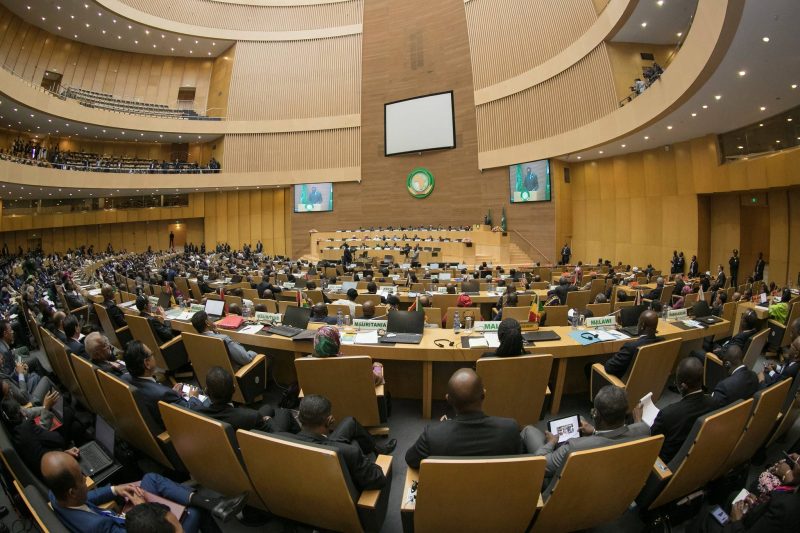By CIPESA Writer |
The Africa Union Data Policy Framework published in July 2022 is one of the most significant documents on data governance on the continent. The Policy Framework is an extensive blueprint to guide African countries’ efforts to establish effective data governance regimes to leverage the data and digital revolution the continent is currently experiencing.
The Policy Framework draws from 30 years worth of experience in attempts to harmonise official statistics in Africa. Compared to the previous initiatives by the African Union (AU), the Policy Framework interrogates the key contextual and capacity challenges inherent in most African countries. It also demonstrates that, in spite of some hiccups, countries can still come up with reasonable and enforceable digital data governance policies and legislative frameworks.
Indeed, as a brief by the Collaboration on International ICT Policy for East and Southern Africa (CIPESA) shows, the Policy Framework is beneficial to data governance, data rights and privacy in Africa. However, its implementation is likely to come up against notable challenges.
The Policy Framework seeks to become a major reference point and blueprint for governments in Africa on data protection legislation, cross-border sharing of critical data and information to facilitate trade and development. Further, it seeks to calibrate the normally complicated balancing act between enforcing data protection and promoting privacy on one hand, while not curtailing data rights, access to information, open data and open government, and promoting cross-border sharing of data without limitations of sovereignty and protectionism by Member States.
It also emphasises the importance of data interoperability and recommends harmonised national data systems that aggregate different and disparate data systems into singular ones accessible to all parties.
However, the brief notes that the implementation plan of the Policy Framework will need actionable and practical guidelines that countries can follow in ensuring that interests in national security, public order and national economic sovereignty do not unnecessarily stand in the way of the immense benefits of data privacy, open data sharing, intercountry digital collaboration on trade and commerce, and the power of harmonisation of data systems.
Benefits the Data Policy Framework Can Deliver to Data Governance and Data Rights in Africa
-
- The Policy Framework provides a key reference resource for governments that are currently designing or reviewing their data governance policy and legal instruments. It is well researched and was collaboratively developed by key institutions of the AU and associate organisations.
- Countries that will draw from the Policy Framework into their data policy making will receive enormous goodwill from Member States on collaboration and cross-border data sharing efforts, goodwill that emanates from the authority and goodwill that the African Union enjoys among Member States.
- The Policy Framework acknowledges the unique and complex contexts of each country. It is not prescriptive, as it gives countries wiggle room to preserve their national and sovereign interests while designing policies that are in tune with continental best practice that the Policy Framework offers.
- Private institutions, civil society and development partners will also find the Policy Framework to be an important resource to guide efforts to collaborate and harmonise their strategies on supporting data and digital ecosystems in Africa, without unnecessary duplication.
- The Policy Framework has potential to provide the all-important middle between data rights and privacy while not compromising easy access to key development data and information. Advocates in these arenas will find the Policy Framework an important guiding tool for their data advocacy strategies.
According to the CIPESA brief, the challenges which implementation of the Policy Framework is likely to face include limited financing both at country and at AU levels. Others are the inherent integration problems within the continent, such as the culture of secrecy among African nations, inward-looking and sovereignty concerns that have already delayed AU initiatives like the continental passport and visa-free travel, and the challenges Regional Economic Communities (RECs) still face in realising free movement of goods and people, common markets and political federation.
Further, the brief notes that many AU Member States have challenges with political democracy, with some routinely shutting down the internet during elections and others weaponising technology use, with cybercrime and surveillance laws being used to crack down on critics and political opponents. “Such nations might find some of the progressive pronouncements and recommendations of the Policy Framework a bit too much of an ask,” notes the brief, arguing that this complex political economy of individual African states could be the biggest challenge for implementing the Policy Framework at country level.
In this brief, CIPESA highlights five key takeaways from the 2022 African Union Data Policy Framework.

